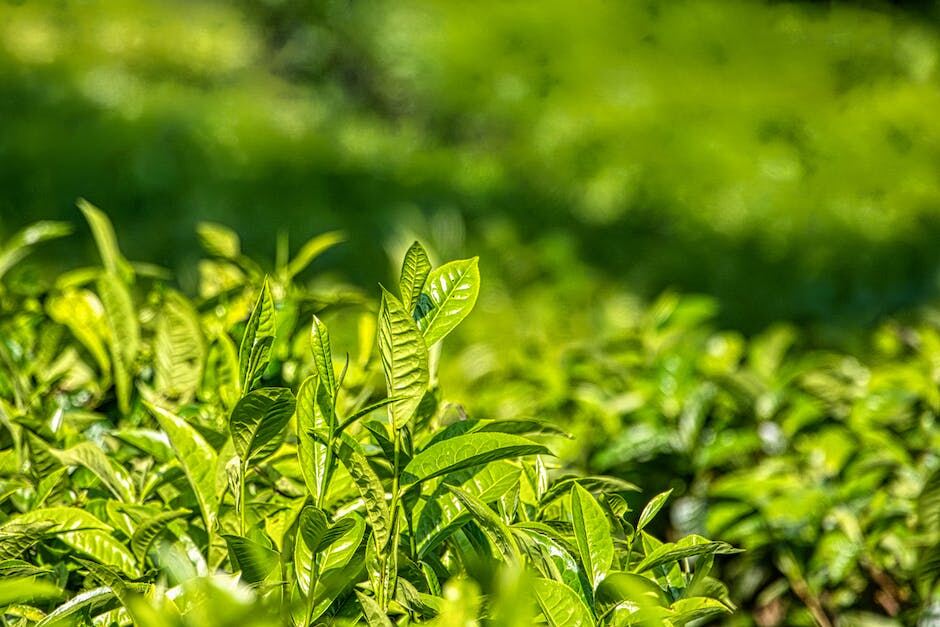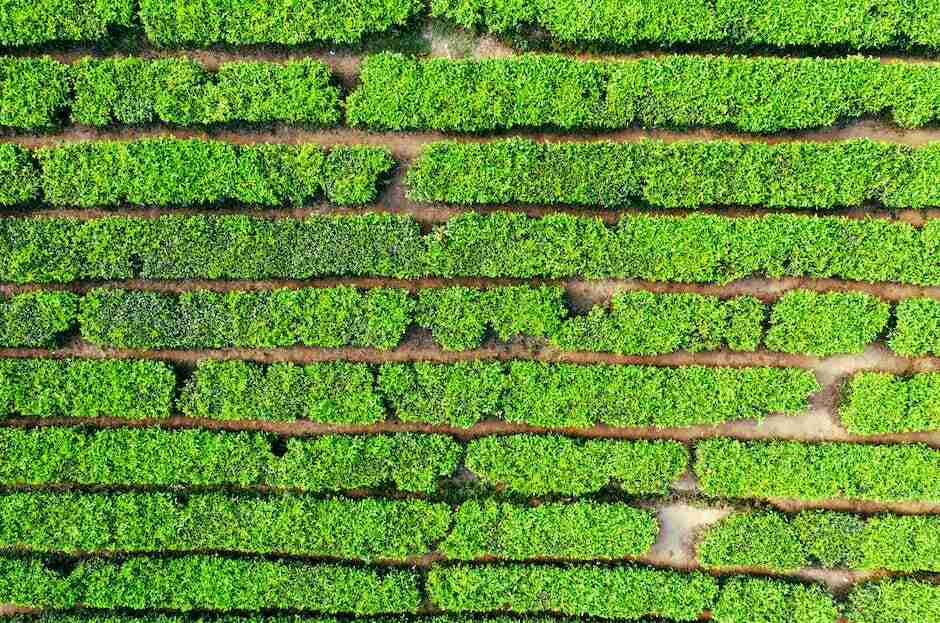Introduction to Herbal Tea for Hair Growth
Are you tired of dealing with hair loss and lackluster hair? Look no further than herbal tea for a natural and effective solution. Herbal tea has been used for centuries for its numerous health benefits, and it has gained popularity in recent years for its positive effects on hair growth.
Unlike traditional teas, such as black or green tea, herbal teas are not derived from the Camellia sinensis plant. Instead, they are infused with various herbs, roots, flowers, and spices, making them a great alternative for those seeking a caffeine-free option.
What makes herbal tea a powerhouse for hair growth is the array of nutrients it contains. These nutrients are known to nourish the hair follicles, stimulate circulation in the scalp, and promote healthy hair growth. So if you’re looking to boost your hair’s vitality, let’s explore some of the herbal teas that can work wonders for your hair.
Green Tea and Its Benefits for Hair Growth
When it comes to promoting hair growth, green tea is a popular choice. Packed with antioxidants and catechins, green tea helps to stimulate hair follicles and protect them from damage. These antioxidants also promote blood circulation to the scalp, ensuring that essential nutrients reach the hair roots.
Additionally, green tea contains a compound called epigallocatechin gallate (EGCG), which has been found to inhibit the production of dihydrotestosterone (DHT). DHT is a hormone that can contribute to hair loss by shrinking the hair follicles. By blocking DHT, green tea can potentially slow down or prevent hair loss.
Green tea also possesses antibacterial properties, which can help keep the scalp free from bacteria and fungus that may hinder hair growth. It can also soothe inflammation and reduce dandruff, further promoting a healthy scalp environment.
To incorporate green tea into your hair care routine, you can brew a strong cup of green tea and let it cool. Use the cooled tea as a final rinse after shampooing and conditioning your hair. Alternatively, you can also find shampoos and hair products infused with green tea extract for added convenience.
Remember, consistency is key when using green tea for hair growth. Regular usage, along with a healthy lifestyle and balanced diet, can yield visible improvements in the strength and thickness of your hair.
Peppermint Tea and Its Impact on Hair Growth
If you’re looking for a refreshing and invigorating herbal tea for hair growth, look no further than peppermint tea. Known for its cooling sensation and minty aroma, peppermint tea offers a range of benefits for your hair and scalp.
One of the key benefits of peppermint tea is its ability to stimulate blood flow to the hair follicles. Improved blood circulation means more nutrients and oxygen can reach the hair roots, promoting healthier and stronger hair growth.
The menthol present in peppermint tea has a soothing effect on the scalp, alleviating scalp dryness, itchiness, and irritation. This can create a conducive environment for hair growth by reducing inflammation and improving overall scalp health.
Peppermint tea also has antimicrobial properties that can help combat scalp infections and reduce the presence of bacteria and fungus that can inhibit hair growth. By keeping the scalp clean and free from any potential pathogens, peppermint tea promotes a healthier scalp and hair growth.
To use peppermint tea for hair growth, you can either brew a cup of tea and let it cool before pouring it over your scalp as a rinse after shampooing, or you can mix the cooled tea with your regular conditioner to enhance its benefits.
Remember to perform a patch test before applying peppermint tea directly to your scalp, as some individuals may be sensitive to its strong properties. If any irritation occurs, discontinue use and consult a dermatologist.
In conclusion, incorporating peppermint tea into your hair care routine can promote hair growth by improving blood circulation, reducing scalp inflammation, and combating scalp infections. Plus, the refreshing aroma will leave you feeling rejuvenated and energized.
Rosemary Tea and Its Effectiveness for Hair Growth
Rosemary is not just a fragrant herb used in cooking; it also offers remarkable benefits for hair growth. When infused into a tea, rosemary can help stimulate hair follicles, strengthen hair strands, and improve overall hair health.
One of the key components in rosemary tea is rosmarinic acid, which has been found to promote hair growth by stimulating blood circulation in the scalp. Improved blood flow means more nutrients are delivered to the hair follicles, leading to healthier and stronger hair growth.
Another benefit of rosemary tea is its ability to combat oxidative stress. Oxidative stress can damage hair follicles and contribute to hair loss. Rosemary tea’s antioxidant properties help protect the follicles from damage caused by free radicals, thereby preserving hair health.
Rosemary tea also has antibacterial and anti-inflammatory properties that can help address common scalp issues, such as dandruff and dryness. By maintaining a healthy scalp environment, rosemary tea creates optimal conditions for hair growth.
To use rosemary tea for hair growth, you can brew a strong infusion by steeping fresh or dried rosemary leaves in hot water. Let it cool down before using it as a final rinse after shampooing your hair. You can also massage the tea into your scalp to further stimulate blood circulation.

For added convenience, you can also find hair care products that contain rosemary extract or essential oil. These products can help nourish and strengthen your hair on a daily basis.
Incorporating rosemary tea into your hair care routine can promote healthier hair growth and improve the overall condition of your hair. However, keep in mind that individual results may vary, and it’s important to consult with a healthcare professional if you have any underlying scalp conditions or concerns.
Chamomile Tea and Its Role in Hair Growth
When it comes to soothing both the mind and the hair, chamomile tea is a popular choice. Known for its calming properties, chamomile tea can also contribute to hair growth and the overall health of your hair.
One of the key benefits of chamomile tea for hair growth is its ability to reduce inflammation on the scalp. Inflammation can hinder hair growth by disrupting the hair follicles and blocking the delivery of essential nutrients. By soothing the scalp, chamomile tea creates a healthier environment for hair to grow.
Chamomile tea is also packed with antioxidants that help protect the hair follicles from damage caused by free radicals. These antioxidants also strengthen the hair shafts, reducing the risk of breakage and promoting healthy hair growth.
Additionally, chamomile tea has antimicrobial properties that can help combat scalp infections and prevent dandruff. By keeping your scalp clean and free from any potential irritants, chamomile tea supports healthy hair growth.
You can incorporate chamomile tea into your hair care routine by brewing a strong cup of tea and using it as a final rinse after shampooing and conditioning your hair. Not only will this promote hair growth, but it will also infuse your hair with a gentle and pleasant fragrance.
It’s worth noting that while chamomile tea is generally safe and gentle, it may cause an allergic reaction in some individuals. Perform a patch test before using it, and if any irritation occurs, discontinue use and consult a healthcare professional.
In conclusion, chamomile tea’s anti-inflammatory and antioxidant properties make it a great addition to your hair care routine. By soothing the scalp, protecting the hair follicles, and preventing scalp infections, chamomile tea can contribute to healthier and stronger hair growth.
Hibiscus Tea and Its Positive Effects on Hair Growth
If you’re looking for a vibrant and flavorful tea that can help with hair growth, hibiscus tea is a fantastic choice. Known for its rich red color and tart taste, hibiscus tea has been used for centuries to promote healthy hair growth.
Hibiscus tea is rich in vitamins, minerals, and antioxidants that can nourish the hair and stimulate hair follicles. This infusion is particularly beneficial for those struggling with hair loss or thinning hair.
One of the key ingredients in hibiscus tea is vitamin C, which plays a crucial role in collagen production. Collagen is essential for maintaining the structure and strength of the hair strands. By promoting collagen synthesis, hibiscus tea helps prevent breakage and promotes stronger, healthier hair.
Another impressive benefit of hibiscus tea is its ability to promote scalp health. Its antimicrobial properties help combat scalp infections, dandruff, and itchiness, creating a favorable environment for hair growth.
Hibiscus tea also contains natural hair conditioning properties that can make your hair more manageable, soft, and shiny. The naturally occurring mucilage in hibiscus helps to reduce frizz and improve overall hair texture.
To incorporate hibiscus tea into your hair care routine, you can brew a strong cup of tea and use it as a hair rinse after shampooing. You can also create a hibiscus hair mask by mixing the cooled tea with other natural ingredients, such as coconut oil or aloe vera gel.
While hibiscus tea is generally safe for most people, it may interact with certain medications. If you have any underlying health conditions or are taking medications, it’s advisable to consult with a healthcare professional before incorporating hibiscus tea into your routine.
In conclusion, hibiscus tea’s rich nutrient content and medicinal properties make it a promising option for promoting hair growth. By nourishing the hair, stimulating the scalp, and enhancing hair texture, hibiscus tea can help you achieve stronger and healthier-looking hair.
Conclusion and Final Thoughts on Herbal Tea for Hair Growth
Herbal tea has long been recognized for its numerous health benefits, and it’s no surprise that it can also contribute to hair growth. Whether you’re struggling with hair loss, thinning hair, or simply want to improve the overall health and appearance of your hair, incorporating herbal teas into your routine can be a natural and effective solution.
Green tea, with its rich antioxidants and DHT-blocking properties, can help stimulate hair follicles and prevent hair loss. Peppermint tea, known for its refreshing and invigorating qualities, can improve blood circulation to the scalp and combat scalp issues. Rosemary tea, with its rosmarinic acid and antioxidant content, can promote stronger hair growth and protect hair follicles. Chamomile tea, with its anti-inflammatory and antimicrobial properties, soothes the scalp and supports healthier hair growth. And hibiscus tea, packed with vitamins and minerals, nourishes the hair and enhances hair texture.
When using herbal tea for hair growth, consistency is key. Regular usage, along with a healthy lifestyle and proper hair care practices, can yield visible improvements in the strength, thickness, and overall health of your hair.
However, it’s important to note that herbal tea may not work the same for everyone. Individual results may vary, and it may take time to see noticeable changes in your hair. If you have any underlying scalp conditions or concerns, it’s always best to consult with a healthcare professional before incorporating herbal teas into your routine.
In conclusion, herbal tea can be a fantastic addition to your hair care regimen. Not only do these teas provide nourishment to the hair and scalp, but they also offer a holistic approach to promoting hair growth and maintaining healthy hair. So why not brew a cup of your favorite herbal tea and give your hair the love it deserves?


Leave a Reply